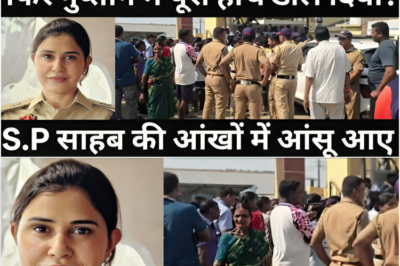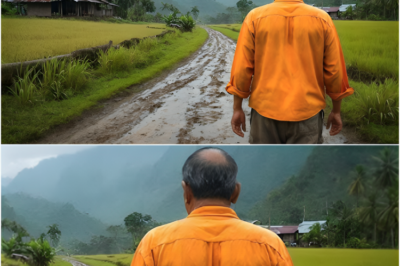After the Odisha student’s death, when the locked room was opened — what was found inside?
.
.
Tragic Self-Immolation of Student Sparks Outcry Over Alleged Sexual Harassment at Fakir Mohan College, Balasore
Balasore, Odisha – On July 12, a heartbreaking incident unfolded at Fakir Mohan College in Balasore district, Odisha, when a young female student attempted self-immolation inside the college premises. The student, whose identity has been withheld for privacy, was reportedly distressed over serious allegations of sexual harassment and mental harassment by an assistant professor. Despite immediate medical attention, she succumbed to her injuries two days later, on July 14.
The Incident
The student arrived at Fakir Mohan College on the morning of July 12 and proceeded directly to the principal’s office. Eyewitnesses report that she engaged in a tense conversation with the college principal. Shortly after this meeting, a disturbing video surfaced showing the student setting herself on fire in a desperate act of protest and anguish. The video revealed the extent of her injuries; she was burned over approximately 95% of her body.

She was rushed to a nearby hospital, where doctors fought to save her life. Tragically, despite their efforts, she passed away on July 14. Her death has sent shockwaves through the community and raised serious questions about the safety and well-being of students at the institution.
Allegations Against the Assistant Professor
According to sources close to the victim, the student had accused the assistant professor of her department, Mr. Sameer Ranjan Sahu, of demanding inappropriate favors. She alleged that he sexually harassed her and subjected her to continuous mental torture. The victim’s claims included not only harassment but also emotional distress caused by the professor’s behavior.
The student had reportedly confided in several of her peers about the harassment as early as June 28. She described how the assistant professor pressured her, initially gaining the trust of her family. Her father had even entrusted the professor with the responsibility of looking after his daughter’s welfare, instructing him to inform the family if she faced any trouble. However, the situation deteriorated when the professor allegedly began demanding favors of a sexual nature.
Internal Complaint and Investigation
On June 30, the student formally lodged a complaint with the college principal, Dilip Ghosh, in the presence of several classmates. Following the complaint, the principal ordered an internal investigation and constituted an Internal Complaints Committee (ICC) to look into the matter.
The ICC submitted its report, which reportedly did not find sufficient evidence to support the allegations of sexual harassment. The committee’s findings stated that the claims could not be conclusively verified, leading to a verdict that disappointed the student deeply. This outcome is believed to have contributed significantly to her mental distress.
Her father has publicly criticized the ICC report as biased and inadequate, blaming it for his daughter’s tragic decision to end her life.
The Victim’s Living Conditions and Mental State
The victim lived in a rented room in Balasore district, sharing accommodation with a female colleague. The room was reported to be dimly lit and cluttered, reflecting the mental turmoil that the student was undergoing. Photos from the room show scattered belongings and a chaotic environment, symbolizing the distress she faced.

Neighbors and friends describe the girl as mentally troubled in the days leading up to the incident. Despite pleas for help and attempts to seek justice, she felt trapped and unsupported.
Timeline Leading to the Tragedy
June 28: The student confides in friends about harassment by the assistant professor.
June 30: Formal complaint filed with the principal.
Early July: Internal Complaints Committee conducts investigation; report submitted with inconclusive findings.
July 12: Student attempts self-immolation inside the college after confronting the principal.
July 14: The student dies due to severe burn injuries.
Eyewitness Accounts and Hospital Response
Priya, a close friend of the victim, recounted the harrowing moments on July 12. She said that after the student set herself on fire near the principal’s office, she ran to a nearby field where she collapsed, screaming in pain. Teachers and students immediately called for help, and an ambulance arrived within minutes.
Two male students from the Akhil Bharatiya Vidyarthi Parishad (ABVP), a student organization, helped carry her to the ambulance. Her brothers later arrived at the hospital and stayed with her during her treatment.
Medical reports confirmed that the victim suffered burns covering nearly 95% of her body, injuries that ultimately led to her death.
The Landlord’s Perspective
The victim’s landlord, who rents out rooms to students, expressed fear and hesitation when asked to show the victim’s room to the media. Concerned about police investigations and potential harassment, he reluctantly allowed access, revealing a dark and cramped room where the victim had stayed.
He mentioned that the student had returned to the hostel only two days before the tragic event after a brief absence due to her mother’s illness. He also noted that the student’s Head of Department had prevented her from appearing for exams, adding to her stress.
Police Investigation and Current Status
The local police have launched an inquiry into the case, examining the allegations against the assistant professor and the circumstances leading to the student’s death. While the ICC report did not find conclusive evidence of harassment, the police are investigating further to ensure justice.
Authorities have assured the public that they will conduct a fair and thorough investigation. Meanwhile, the college administration faces mounting pressure to improve student safety and address grievances more effectively.
Community Reaction and Calls for Reform
The tragic death has sparked outrage across Odisha and beyond. Students, activists, and citizens have demanded stricter measures to prevent sexual harassment in educational institutions and better support systems for victims.
Many have criticized the handling of the complaint by the college’s Internal Complaints Committee, calling for greater transparency and accountability.
Social media platforms have been flooded with messages of condolence and calls for justice, with hashtags demanding action against sexual harassment gaining traction.
The Larger Issue of Sexual Harassment in Educational Institutions
This incident highlights the ongoing problem of sexual harassment and mental harassment faced by students in colleges across India. Despite laws like the Sexual Harassment of Women at Workplace (Prevention, Prohibition and Redressal) Act, 2013, many victims remain unheard, and complaints are often dismissed or inadequately addressed.
Experts emphasize the need for:
Robust internal complaint mechanisms.
Sensitization of college staff and students.
Counseling services and mental health support.
Swift and impartial investigations into allegations.
PLAY VIDEO:
Conclusion
The death of the Fakir Mohan College student is a tragic reminder of the urgent need to create safe, supportive educational environments free from harassment and abuse. It underscores the importance of listening to victims, taking their complaints seriously, and ensuring justice without delay.
As the investigation continues, the community mourns the loss of a young life and hopes that this tragedy will lead to meaningful changes that prevent such incidents in the future.
News
Inalila ng Asawa sa Loob ng 15 Taon, Pero Hindi Niya Alam na May Itinatago Akong 100 Milyong Piso
Inalila ng Asawa sa Loob ng 15 Taon, Pero Hindi Niya Alam na May Itinatago Akong 100 Milyong Piso ….
न्याय का चक्र: एक महिला दरोगा की गरिमा और वीरता
ड्यूटी से लौट रही महिला पुलिस दरोगा के साथ हुआ बहुत बड़ा हादसा/S.P साहब की आंखों में आंसू आए/…
ड्यूटी से लौट रही महिला पुलिस दरोगा के साथ हुआ बहुत बड़ा हादसा/S.P साहब की आंखों में आंसू आए/
न्याय का चक्र: एक महिला दरोगा की गरिमा और वीरता प्रस्तावना काजल अपनी नौकरी और बेटे की परवरिश के बीच…
Inalila ng Asawa sa Loob ng 15 Taon, Pero Hindi Niya Alam na May Itinatago Akong 100 Milyong Piso
Inalila ng Asawa sa Loob ng 15 Taon, Pero Hindi Niya Alam na May Itinatago Akong 100 Milyong Piso ….
Pagkalaya ko sa kulungan, nalaman kong may rancho ako sa bundok… pero nang makita ko ito…
Pagkalaya ko sa kulungan, nalaman kong may rancho ako sa bundok… pero nang makita ko ito… . . Part 1:…
Pinahiya ang matanda sa party ng kumpanya — ilang sandali lang,isang rebelasyon ang bumalot sa lahat
Pinahiya ang matanda sa party ng kumpanya — ilang sandali lang,isang rebelasyon ang bumalot sa lahat . . Part 1:…
End of content
No more pages to load







